#film: sibyl
Text





Dorian Gray (2009) dir.: Oliver Parker
#*gif#*film#dorian gray#dorian gray 2009#sibyl vane#rachel hurd wood#filmedit#movieedit#perioddramasource#onlyperioddramas#perioddramaedit#perioddramacentral#weloveperioddrama#cinemapix#fyeahmovies#filmgifs#costumeedit#costumegifs#costume drama#period drama
202 notes
·
View notes
Text

"ANNETTE AND ANGELA (LUSTGARTEN)"
SIBYLLE BERGEMANN | BERLIN, 1982
[gelatin silver print | 16 1/2 × 11"]
#sibylle bergemann#landscape#black and white#monochrome#analog#film photography#berlin#contemporary art#80s#german#photography#u
132 notes
·
View notes
Photo

Trude Fleischmann. The actress Sibylle Binder. Vienna, c. 1926
I Am Collective Memories • Follow me, — says Visual Ratatosk
#BW#Black and White#Preto e Branco#Noir et Blanc#黒と白#Schwarzweiß#retro#vintage#Trude Fleischmann#Sibylle Binder#Vienna#Austria#1926#1920s#20s#portrait#肖像#画像#retrato#Porträt#movies#映画#filmes#films#Filme#cinema#cinéma#Kino#シネマ#film director
29 notes
·
View notes
Photo
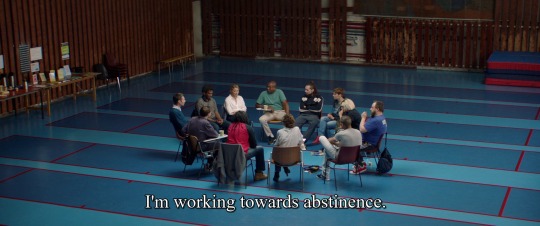

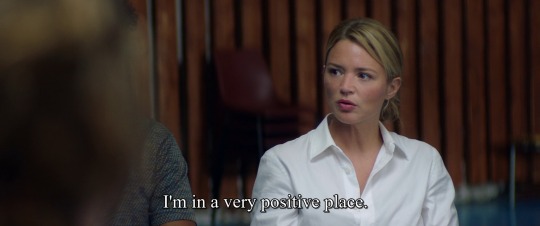
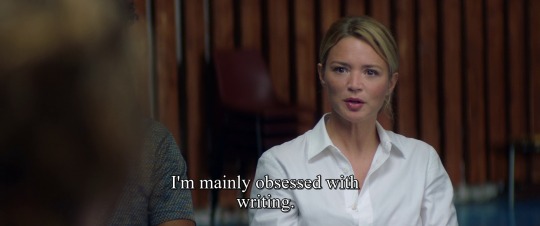
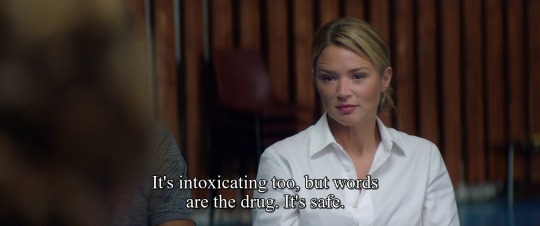
Sibyl (Justine Triet, 2019)
#Sibyl#Justine Triet#2010s movies#Virginie Efira#drama film#Adèle Exarchopoulos#Gaspard Ulliel#France#passion#life#psychotherapist#writing#inspiration#Sandra Hüller#Europe#European cinema#Stromboli#filmmaking#love#Paul Hamy#Labirinti di donna#metacinema#Laure Calamy#film shooting#Niels Schneider#flashback#Italia#Arthur Harari#alcoholism#alcoholics anonymous
25 notes
·
View notes
Photo
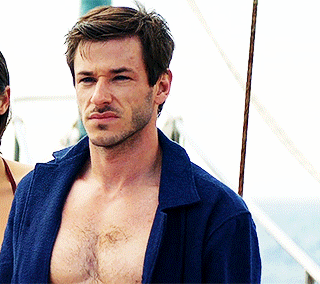



Gaspard Ulliel in Sibyl (2019)
54 notes
·
View notes
Text


Justine Triet, {2019} Sibyl
#film#gif#justine triet#sibyl#2019#female filmmakers#landscapes#volcanoes#stromboli#italy#clouds#airplanes#interiors#no people#feature length#2010s#france#belgium
2 notes
·
View notes
Text










Happy Birthday Robert Redford!
#Robert Redford#celeb birthdays#cult actor#cult film director#b/w portrait#fashion photography#Annie Leibovitz#red carpet fashion#Sibylle Szaggars#Jane Fonda#Butch Cassidy och Sundance Kid#Paul Newman#Katharine Ross
5 notes
·
View notes
Text




Icon and TV grandma, rest in peace Angela Lansbury
#angela lansbury#murder she wrote#jessica fletcher#the picture of dorian gray#sibyl vane#the harvey girls#rest in peace#tv grandma#short haired queen#mf legend#seqom;film
12 notes
·
View notes
Photo



Sibyl macht eine Menge Sachen, die man als Therapeutin eigentlich nicht machen sollte. Sie schreibt mangels sonstiger Inspiration einen Roman über eine ihrer Patientinnen, mischt sich wenig distanziert ein, und schläft mit deren Beziehung, die sie eigentlich kitten sollte. Das ist insofern nachvollziehbar, als es sich um Gaspard Ulliel handelt (in seiner letzten Filmrolle, bühü). Sie vernachlässigt zudem ihre Familie, ruiniert einen (allerdings ohnehin zweifelhaften) Filmdreh auf Stroboli und trinkt zuviel. Wir kommen nicht ganz dahinter, ob es eine Komödie oder ein Psychodrama werden sollte, aber es jedenfalls schön verschroben und Virginie Efira muß. selbst neben Stromboli, unbedingt als Naturereignis gewertet werden.
#Sibyl#Virginie Efira#Gaspard Ulliel#Adèle Exarchopoulos#Sandra Hüller#Niels Schneider#Paul Hamy#Laure Calamy#Film gesehen#Justine Triet#Der französische Film der Woche
1 note
·
View note
Text


The sharp pen of Sibyl Moholy-Nagy (1903-71) was feared by many architects throughout the 1950s and 1960s: for Progressive Architecture, Architectural Forum, Casabella, Bauwelt, Architecture d’aujourd’hui and other periodicals she wrote about contemporary architecture and didn’t hold back her criticism. Unlike many of her colleagues Moholy reflected architecture historically and took a stand for users and inhabitants, a position out of which she criticized Mies van der Rohe’s „facade architecture“.
Her way to becoming an architectural critic, teacher and frequent lecturer nonetheless was stony: born the daughter of a Dresden architect then Sibylle Pietsch, unlike her brother, wasn’t allowed to go to university but instead began an apprenticeship in bookselling which she eventually quit to become an actor in Berlin. Although she acted in different films and plays she eventually became a screenwriter, a position that suited her passion for writing. In Berlin she also met her future husband Laszlo Moholy-Nagy whom she married in 1932 and with whom she went into exile in London and Chicago. Virtually in passing she also gave birth to two daughters.
The death of her husband in 1946, in spite of all the grief, fundamentally changed Sibyl’s life and forced her into an independence that she came to embrace ever more wholeheartedly: living off the occasional sale of her husband’s artworks she had the freedom to lecture on her Laszlo’s work, organize his estate but also write his biography which to this day remains a valuable source.
In 1952 José Luis Sert lured Sibyl to New York to teach architecture at Pratt Institute, a position she received also thanks to some fibs on her CV. With her distinct autodidactic curiosity she also pursued the research into anonymous vernacular architecture that resulted in the book „Native Genius in Anonymous Architecture“, published in 1957.
This adventurous and rich life has been recounted by Hilde Heynen in her lucid and highly readable biography, published in German by Sandstein in 2019, that paints a lively and differentiated picture of a female critic, writer and teacher who was a real rarity in her time.
25 notes
·
View notes
Text
The version of the alter programming conspiracy theory that claims it wasn't done by a massive conspiracy, but rather just a bunch of random unconnected individuals is still completely absurd, because it's effectively proposing that there was an epidemic of random people giving children DID on purpose at a time period when few people had even heard of DID outside of what they'd seen in the made-for-TV Sibyl film.
(Also, alter programming is a completely pseudoscientific concept, but confabulated memory cultivation is a very real and observable thing.)
#sra#satanic panic#satanic ritual abuse#ritual abuse#organized abuse#alter programming#alter programming conspiracy theory#did#osdd
15 notes
·
View notes
Text
OC most likely
Thanks @kaylinalexanderbooks for the tag as always ! I enjoy them a lot (even if i'm quite slow to answer them) !
Rules: explain which of your OCs are most likely to follow the given prompts, then provide three more prompts!
Most likely to enjoy "classics" like Moby Dick or Wuthering Heights.
I'm going to say Sibylle, she loves reading and I think classics/historical books are by far her favorites !
Most likely to be a film snob.
That's an interesting question ! I think Tristan (a side character living in Fronsant-sur-Breuil) would totally be a film snob and his wife wouldn't mind this much.
Most likely to enjoy eating at IHOP.
I'll say Alec and the other band members (Martin, Oriane and Matthieu). I can see them go to this place and enjoy the food, well at least before the end of volume 1.
Your prompts : 1) Most likely to stay up all night at a sleepover. 2) Most likely to insult someone in another language. 3) Most likely to tell everyone they can't paint/draw but then show a masterpiece.
Dgkotr tag list (ask to be -/+) :
@athenaspeculiardaughter @kaylinalexanderbooks @raiden-makoto2 @sarandipitywrites
@jaelink @aalinaaaaaa @lyutenw @buffythevampirelover
@nettleandthorne @finxi-writes @arwenschepers @corruptedbread
@whimsical-blood-fairy @unrepentantcheeseaddict @kidukami @ryns-ramblings
@rowenas-my-fave-child @mysticstarlightduck (+ anyone who wants to do it)
#writeblr#writers on tumblr#writing#writing community#writers#project lmotr#project dgkotr#don't get killed on the road#📚#🏚️#🎸#🍕#🎤
8 notes
·
View notes
Note
my dear, magnificent artist pal, what is one tv show and/or movie, and one fic you think more people should try?
Hello, thank you for the question 😊💕🤗
I have to admit, my taste is pretty mainstream, if I recommend something chances are high everyone has already checked it out.
Anyway, since I am gushing on and on about Lockwood & Co., that obviously has to be my first answer for series. Other than that, I’d say the anime Psycho Pass. It’s set in a futuristic Japan governed by the so-called Sibyl system, which is continuously monitoring every citizen’s mental state and criminal potential, all in the name of persecuting potential criminals and ensuring a peaceful society. The genre is probably best described as action/psychological thriller, and it deals with questions such as whether it is morally correct to judge someone for actions not yet taken and whether such a system would create a utopian or dystopian future.
For films, I’d say the anime film your name. It’s a romance movie with fantasy elements and the story revolves around a boy and girl from different backgrounds switching bodies once in a while, but evolves into so much more. It’s hilarious and sad and tragic and beautiful and I cried at every rewatch thus far.
Two critically underrated Rebelcaptain fics imo are amor fati by @theputterer (I ugly cry every time, every single time, reading it) and the fact that you’re alive is a miracle by FortySevens.
8 notes
·
View notes
Text
2023 faves
albums:
colour green by sibylle baier (perpetual favourite)
the milk-eyed mender by joanna newsom
let england shake by pj harvey
folksongs and ballads by tia blake
consolations (ep) by clara mann
books:
o caledonia by elspeth barker
the well of loneliness by radclyffe hall
the prime of miss jean brodie by muriel spark
remains of elmet (poetry) by ted hughes
the diaries of richard burton
films:
the prime of miss jean brodie 1969
the rainbow 1989
i start counting 1970
the worst person in the world 2021
a field in england 2013
thank you to the eternally lovely grace @sapokanikan for tagging me 🩷🩷🩷 unfortunately i am always far too nervous to tag people, but i always want to see people's top lists, so if you fancy it you can say i tagged you
23 notes
·
View notes
Photo
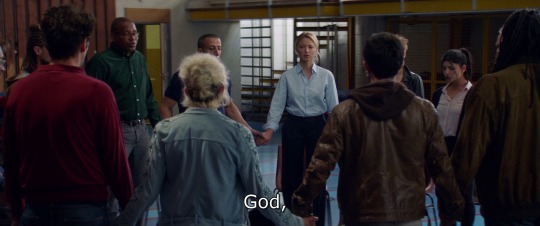

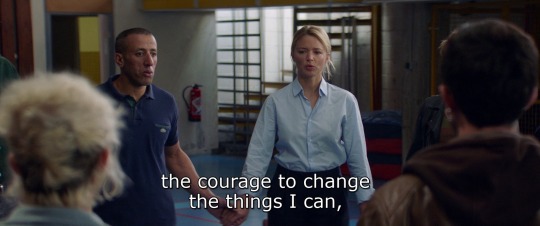

Sibyl (Justine Triet, 2019)
#Sibyl#Justine Triet#2010s movies#Virginie Efira#drama film#Adèle Exarchopoulos#Gaspard Ulliel#France#passion#life#psychotherapist#writing#inspiration#Sandra Hüller#Europe#European cinema#Stromboli#filmmaking#love#Paul Hamy#Labirinti di donna#metacinema#Laure Calamy#film shooting#Niels Schneider#flashback#Italia#Arthur Harari#alcoholism#alcoholics anonymous
26 notes
·
View notes
Text
Psycho-Pass and Self-Surveillance
While the shows and films we have been watching have all critiqued different economic and social systems in different ways, I don’t believe any has done so quite as strikingly as Psycho-Pass has. Although the concept of panopticism was depicted to the extreme, and though the raw brutality in the anime was hard to stomach at times, I think both aspects really drew out the flaws that come with self-surveillance and discipline.
Although the point of a self-surveilling system is to promote compliance and obedience, Psycho-Pass shows that it often leads to a lot of injustice. Although those who disobey are indeed punished, their disobedience also comes at the cost of those who tried to follow the system. In the very first episode, we see how a man’s hue getting flagged a single time by a drone snowballs into him taking a woman hostage and torturing her. Because of how she was treated during this incident, her levels of distress rose, which caused her to be marked as needing to be taken in, which only raised her distress even more, until her levels were so high that the system demanded that she needed to be executed, despite her being the clear victim of the situation. The nature of the psycho-pass system also allowed for a man to be bullied without any interference from authorities because it allowed everyone to keep their own distress levels from reaching too high, taking out their pent up feeling on him in the name of obeying the system. In addition, because the surveillance system and punishments were so extreme, people who were otherwise upstanding and compliant citizens who followed the system only needed to make one mistake for all of their obedient reputation to be flushed down the drain.

As self-surveillance bred injustice so too did it promote extreme isolation. Because the Sibyl system required everyone to constantly be aware of how they acted, what they said, what they thought, how they felt, and how things affected them; it became much easier for society to prioritize and focus on themselves over others. Community was not rewarded or valued, obedience and self-preservation was. Along with isolating themselves, people were also quick to isolate and ostracize others. Those whose hues or crime coefficients got flagged were villainized, cast out, and looked down upon. Most if not all of the criminals on the show had a mentality of, “It’s too late for me, I’ll never be accepted by normal people, there’s no hope for me and no turning back from this.” Self-surveillance only promoted obedience to a certain point, and past that point, the nature of the system only fueled further crime and chaos.

While the Sibyl system certainly was effective in its control over people, I think Psycho-Pass shows that systems of repression and suppression are never viable for long. In such systems disobedience and rebellion are not extinguished or ceased, they are merely festering and biding their time until they get an outlet. And such an outlet, as we saw in the show, does not result in freedom but leads to disastrous consequences.
7 notes
·
View notes